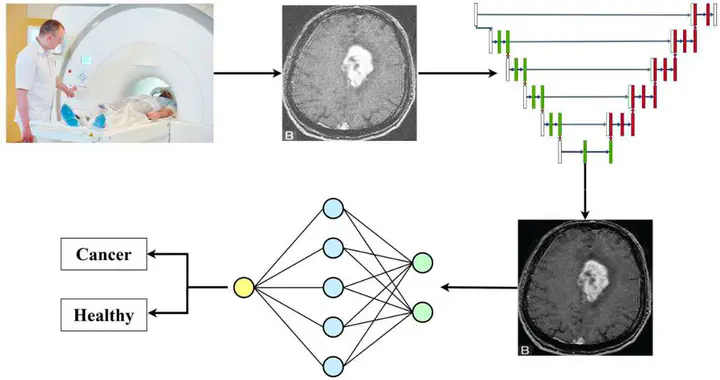
Abstract
Brain tumors are one of the leading causes of death, and hence it is critical to diagnose them early. MRI is the most effective diagnostic tool for detecting a tumor. However, thermal noise, temperature fluctuations, and other artifacts can generate noisy MRI scans, leading to inaccurate diagnoses. Deep learning algorithms combined with image processing techniques have aided in a variety of medical imaging tasks, including enhancing MRI images. Our work proposes a U-Net architecture with two encoder-decoder pairs for denoising MRI scans which were finely tuned on a dataset generated by injecting synthetic Gaussian noise. The model improved the Peak Signal to Noise Ratio (PSNR) from 11.90 to 30.96. The presented work also provides empirical evidence that the proposed denoising strategy enhances the prediction accuracy of brain tumors by nearly 23%. The developed denoising technique using U-Net would benefit radiologists and computer-aided diagnostic systems (CAD) in precisely diagnosing the disease by generating cleaner and clearer MRI scans.